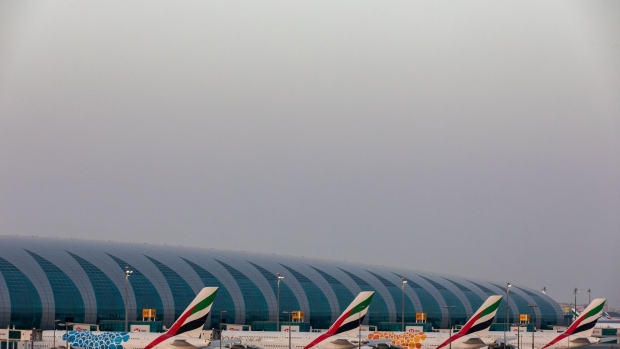Jun 6, 2023
Airbus Ended the A380 Years Ago. Its Biggest Buyer Remains a Fan
, Bloomberg News

(Bloomberg) -- Tim Clark won’t let go.
The president of Emirates Airline has long been the biggest cheerleader of the Airbus A380 super-jumbo, highlighted by the fact that his airline operates more than 100 of the double-decker behemoths, far in excess of any rival.
Yet despite all the praise the long-serving executive has heaped on the plane over the years, Airbus SE could never make the numbers work. After orders ran dry, the European planemaker killed the program in 2019 and handed over the last unit at the end of 2021 — to Emirates. Dubai’s state-owned airline plans to fly its A380s into the next decade, and start retiring them in 2032, Clark said.
There’s still life for aircraft that size, Clark said Tuesday, likening the A380 to a Dyson vacuum cleaner that’s capable of gobbling up transfer capacity and redirecting it like no other jet. With travel demand booming and more people upgrading to the front of the cabin, Clark says his A380s are full and that passengers are loving the experience.
“It’s a great big black hole that’s sucking in matter from everywhere,” Clark told journalists in Istanbul at the International Air Transport Association annual meeting.
What’s more, tight capacity and the difficulty airports like London Heathrow are having adding runway capacity have only raised the need for large aircraft that can accommodate the masses, he said.
“As you know, I’ve been bemoaning the absence of the A380,” Clark said. “I have six A380s going into Heathrow at a 95% seat factor, and in the absence of a third runway, which I don’t think will happen, I shudder to think what’s going to happen.”
Clark says that on popular routes, the A380’s economies of scale allow it to ferry the same number of passengers that would require two and a half trips by the smaller Boeing Co. 787 jet, an advantage he said is “lost on a lot of people.”
Other airlines have long disagreed. The A380 might well be a hit with travelers, who enjoy the sheer size of the plane with its high ceilings, two full cabins and perks like business-class bars and first-class showers. But the model always remained an exotic afterthought for most operators, who bought it in much smaller numbers than Airbus originally anticipated.
The pandemic only hastened the aircraft’s demise. Airlines like Air France have phased out the A380 outright, and the likes of Deutsche Lufthansa AG have only brought it back in small numbers. Qatar Airways will fly them for a few years but has already set its eyes on the next generation: the Boeing 777X and the Airbus A350, twin-aisle jets that are vastly more fuel-efficient and easier to operate point-to-point.
It’s not the first time that Clark has lobbied Airbus to revive the A380. Before Airbus axed production, Clark suggested fitting it with new-generation engines to make it more fuel efficient. The idea never took hold, not least because engine makers couldn’t justify the investment on a program with limited appeal.
Clark said a lighter double-deck aircraft that transports 500 people and is powered by more fuel-efficient engines such as Rolls Royce Plc’s still-in-development Ultrafan turbine could offer a solution for scarce airport slots as demand for travel is expected to grow.
Some A380s have already been broken up and sold off for scrap, an inglorious end to a jet that performed its first commercial flight only in 2007. Airbus has said that the entry into service was part of the A380’s death knell, given the aircraft essentially launched straight into the global financial crisis that depressed demand for years.
And even if the A380 were to suddenly enjoy a second lease on life, bringing back production would be close to impossible. Airbus has begun converting the cavernous final assembly line of the jet at its Toulouse headquarters in southern France into a line that churns out the A320 family jet — a far smaller model than its giant sibling, but eternally more profitable.
In the giant hangar in Toulouse, there’s still a large image of the A380 gracing the walls, and the enormous gates point to the sheer scale of the plane — final vestiges of a program that still has its fans — chief of all Tim Clark — but long lost its buyers.
--With assistance from Guy Johnson.
©2023 Bloomberg L.P.


